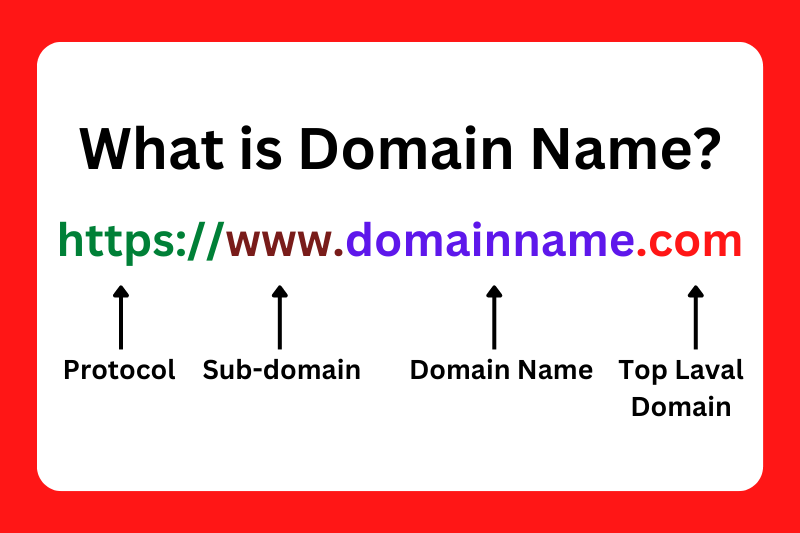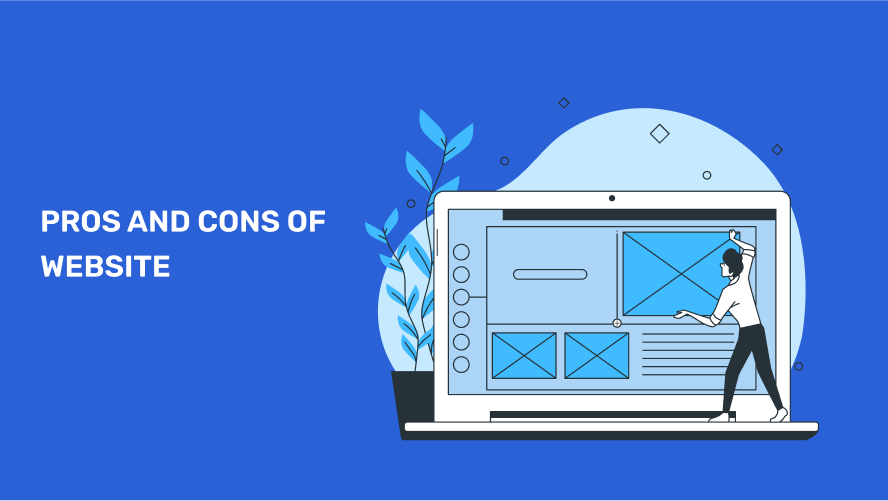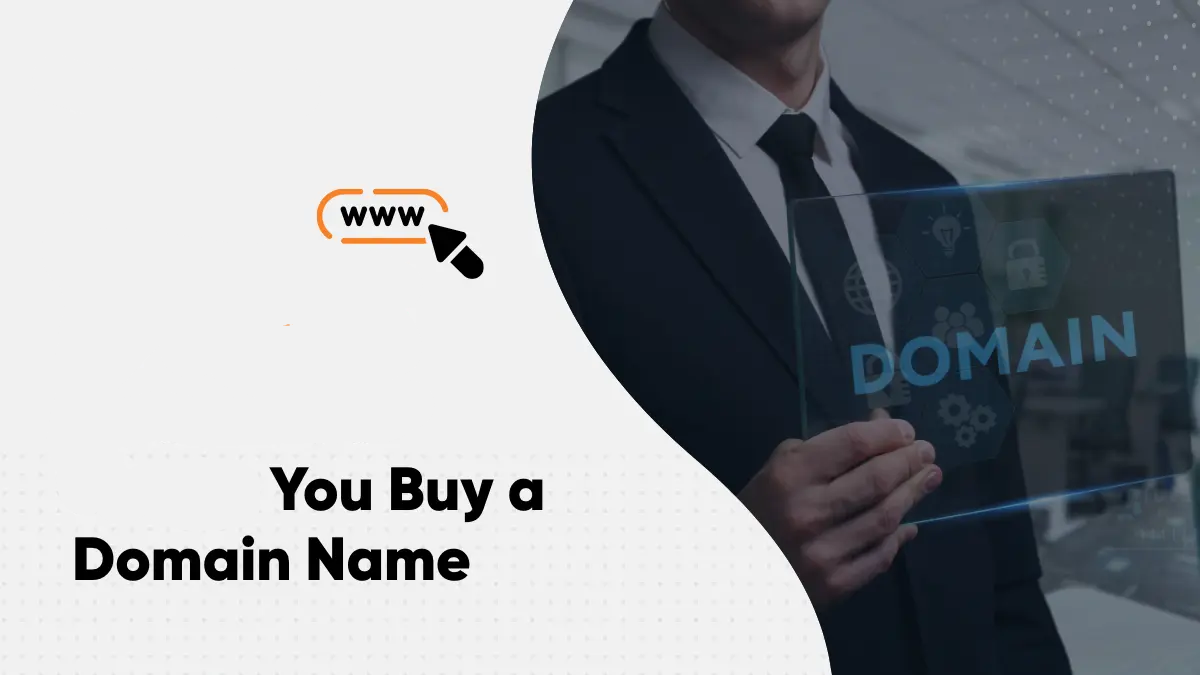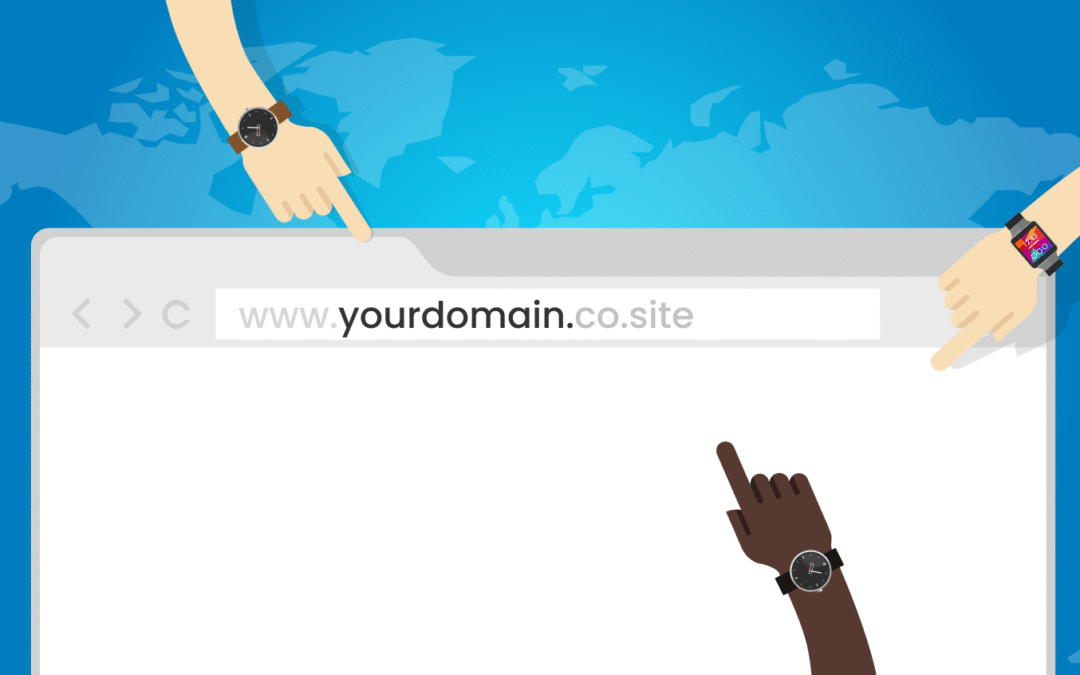When I first thought about creating a website, the idea of buying a domain name seemed like a big commitment. I wondered if it was really necessary or if there was a way to get my site online without spending money upfront. The good news is you don’t always need to purchase a domain to start building and sharing your website.
Many platforms offer ways to publish websites for free, making it easier than ever to test ideas or showcase projects without an initial investment. If you’re just starting out or want to experiment, it’s possible to launch a site and reach your audience without owning a custom domain. Let me walk you through what you need to know before you decide whether to buy a domain or explore other options.
Understanding What a Domain Name Is

Understanding-What-a-Domain-Name-Is
A domain name connects visitors directly to a website by serving as an address on the internet. I use domain names like “example.com” or “google.com” every day when navigating to different sites. Each domain name translates to a specific IP address, making websites easily discoverable and accessible.
Without a domain, most websites only display a technical IP address or a subdomain from a larger platform, which looks less professional and is harder for visitors to remember. For example, free website builders often assign addresses such as “myportfolio.sitebuilder.com” instead of a custom name.
Domain names consist of the following components:
| Component | Example Element | Description |
|---|---|---|
| Top-Level Domain | .com, .org | Indicates the purpose or type of site |
| Second-Level | google, wikipedia | Identifies the individual site itself |
| Subdomain | blog, shop | Separates sections within a main domain |
I see popular domain extensions like .com, .org, or .net used by most professional websites. Platforms offering free hosting typically provide a subdomain tied to their service name but don’t allow custom domains without payment.
Registering a domain name isn’t essential for creating or testing a website’s functions. If I select a free website option, I work within subdomain structures, keeping my project online but under a default platform address.
Can You Make a Website Without Buying a Domain?
Creating a website without buying a domain uses free web hosting services that provide a subdomain under their domain, like wixsite.com or wordpress.com. When I register with these providers, I design my site using their website builders, then publish it with a subdomain they assign. For example, Wix and WordPress.com let me publish sites as yoursite.wixsite.com or mysite.wordpress.com. These platforms suit personal portfolios, learning, or informal projects, since no upfront domain investment is required.
Features, branding, and site ownership differ between free subdomain sites and sites with custom domains. Free hosts keep their name in my site’s address, limit access to advanced features, and display their branding unless I upgrade. Although visitors can still access my content, the URL may not build as much trust or recognition compared to a unique domain.
For practical comparison, these points show typical distinctions:
| Platform | Free Subdomain Example | Custom Domain Available | Notable Limitations (Free) |
|---|---|---|---|
| Wix | yoursite.wixsite.com | Yes | Wix ads, limited design control |
| WordPress.com | yoursite.wordpress.com | Yes | WordPress ads, limited plugins |
| Google Sites | sites.google.com/view/xyz | No (requires G Suite) | Basic design, Google branding |
Most free web hosts include their brand in the website address, limit design or feature access, and sometimes show ads. If I need to build a brand or establish credibility, a paid custom domain adds authority, enables branded email addresses, and removes third-party branding.
Using a subdomain remains an option for hobby sites or early experiments, but a custom domain controls the website address more fully and increases search engine visibility. Platforms such as Wix, WordPress.com, and Google Sites support both approaches, so I can launch a site without purchasing a domain, yet switch to a custom domain if I want expanded control later.
Ways to Create a Website Without a Domain Name
Anyone can build a site before buying a domain. I use several practical methods that skip domain registration but still allow web projects to go live or get tested online.
Using Free Website Builders
Free website builders like Wix and Weebly let me launch a site instantly. I choose from pre-made templates and drag-and-drop features. These platforms give a ready-made URL in a subdomain format, such as username.wixsite.com/site. This approach suits portfolios, hobby blogs, and test sites. Free builders attach their branding, which impacts credibility for commercial or casino-related projects.
Comparison of Popular Free Website Builder Features
| Platform | Subdomain Example | Customization | Hosting Included | Branding Presence |
|---|---|---|---|---|
| Wix | username.wixsite.com/site | High | Yes | Yes |
| Weebly | sitename.weebly.com | Medium | Yes | Yes |
| WordPress | sitename.wordpress.com | Medium | Yes | Yes |
Publishing on Subdomains
Some web hosts give me access to a subdomain under their main domain. My address looks like yoursite.host.com. Developers and students use subdomains to publish work, test new features, or train staff. This path saves costs in the short term and enables a quick switch to a custom domain for future casino business ventures or other clients.
Subdomain Structure Table
| Hosting Provider | Subdomain Format | Migration to Custom Domain |
|---|---|---|
| Bluehost | yoursite.bluehost.com | Easy |
| SiteGround | yoursite.siteground.net | Easy |
| HostGator | yoursite.hostgator.com | Easy |
Localhost Development and Internal Networks
I develop websites locally using software like XAMPP or MAMP. This lets me test and perfect projects on localhost or an internal network IP, keeping them private. Local builds work for learning site structures or building an internal casino staff portal before public launch.
Development Environment Examples
| Software | Testing Address | Internet Access | Use Case |
|---|---|---|---|
| XAMPP | http://localhost | No | Local development |
| MAMP | http://localhost | No | Local development |
My approach to website creation adapts to the project’s stage and goals. Sites for personal use, education, or initial casino prototype testing don’t demand immediate domain registration.
Pros and Cons of Building a Website Without a Domain

Pros-and-Cons-of-Building-a-Website-Without-a-Domain
Building a website without buying a domain offers quick access and low risk, yet introduces several restrictions. I’ll highlight both the benefits and trade-offs for anyone considering this approach.
Advantages
- Cost Savings
I avoid registration and hosting fees by relying on free platforms like Wix or WordPress.com, letting me experiment risk-free when budgets are limited.
- Quick Setup
I can launch a site in minutes since most free builders provide drag-and-drop editors and ready-made templates.
- Safe Testing & Development
I test new features, plugins, or coding techniques locally or on a subdomain without affecting visitors or live projects.
- Great for Learning & Prototyping
Free or local environments help me learn web development or prototype site ideas before scaling up.
Comparison Table: Free Subdomain vs. Custom Domain
| Feature | Free Subdomain Example | Custom Domain Example |
|---|---|---|
| URL Structure | mysite.wixsite.com | mysite.com |
| Cost | $0 | $10–$20/year+ |
| Branding | Host platform displayed | Fully personalized |
| SEO Benefits | Low | High |
| Email Integration | Usually unavailable | Available |
| Scalability | Limited | High |
Limitations
- Lack of Professionalism
Using a subdomain like mysite.webhost.com reduces brand credibility, with search engine rankings and user trust often impacted.
- Customization and Feature Limits
Free plans restrict bandwidth, storage, app integration, and design options, commonly making growth difficult.
- Performance Constraints
Shared free hosting speeds tend to be slower, which negatively influences user experience.
- Limited Visibility
Sites without custom domains get indexed less frequently and appear lower in search results.
- Migration Required for Business Use
When upgrading from a free plan to a full-feature site, I often need to purchase a domain and pay for hosting to meet business standards.
| Limitation | Impact on Website |
|---|---|
| Subdomain Branding | Decreases professionalism |
| Restricted Features | Limits customization and growth |
| Shared Resources | Slower loading, reduced reliability |
| SEO Difficulty | Harder to achieve high rankings |
| Migration Complexity | Extra steps to go public or sell |
This balanced assessment helps me decide if skipping the domain purchase aligns with my goals for developing, testing, or sharing my site.
When Should You Consider Buying a Domain?

When-Should-You-Consider-Buying-a-Domain
I recommend buying a domain when establishing a serious online presence, growing a brand, or improving your site’s perceived trustworthiness. A custom domain supports these goals with unique branding, direct ownership, and broader digital marketing features. Free subdomains come with significant limitations, so buying a domain proves essential for advancing beyond basic projects.
Scenarios Where Buying a Domain Makes Sense
- Building a Professional Website
Owning a domain increases your site’s credibility, essential for businesses, portfolios, or public organizations.
- Launching a Brand or Business
Domains provide brand-specific addresses, which are memorable and reinforce your identity for customers and search engines.
- Improving SEO Performance
Search engines treat custom domains as authoritative, helping boost rankings and organic discovery.
- Setting Up Business Email Addresses
Domains enable branded emails (e.g., info@mybrand.com), while free subdomains only allow generic addresses.
- Running Advertising and Marketing Campaigns
Domains make it possible to track data, integrate advanced marketing tools, and create custom landing pages.
Table: Features Comparison — Free Subdomain vs Custom Domain
| Feature | Free Subdomain | Custom Domain |
|---|---|---|
| URL Structure | yoursite.provider.com | yoursite.com |
| Professionalism | Low (provider branding) | High (brand only) |
| Credibility | Limited | Strong |
| SEO Value | Restricted | Full |
| Email Address Integration | Not available | Available |
| Customization | Limited | Extensive |
| Control and Ownership | None | Full |
| Upgrade/Migration | Required for branding | Not required |
Conclusion
When I first started building websites I found it reassuring to know that I didn’t have to commit to buying a domain right away. Free platforms made it easy for me to experiment and share my ideas without any upfront investment.
As my goals shifted toward building a professional presence I realized the value of having my own domain. It gave me more credibility and control over my brand. Whether you’re just testing the waters or ready to take your site to the next level you’ve got options that fit your needs and ambitions.
Frequently Asked Questions
What is a domain name?
A domain name is your website’s address on the internet, like “example.com,” that visitors use to reach your site directly. It replaces complex IP addresses with a simple, memorable name.
Do I need to buy a domain name to create a website?
No, you don’t have to buy a domain name to create a website. Many free website builders offer subdomains, which let you publish your site without any upfront cost.
What is the difference between a subdomain and a custom domain?
A subdomain is a prefix attached to a larger platform’s domain (e.g., yoursite.wixsite.com), while a custom domain is unique to you (e.g., yoursite.com). Custom domains look more professional and are easier for visitors to remember.
Are there disadvantages to using free subdomains?
Yes, sites on free subdomains often feature the hosting company’s branding, limited features, and less credibility. They can also restrict your ability to customize and may impact your website’s search engine ranking.
When should I consider buying a custom domain name?
Buy a custom domain if you want to establish a professional online presence, build a brand, improve credibility, get better SEO results, or use branded email addresses for your business.
Do custom domains improve SEO and trust?
Yes, custom domains generally help your website rank better in search engines and make your site appear more trustworthy and professional to visitors.
Can I move my website from a free subdomain to a custom domain later?
Yes, most website platforms allow you to upgrade to a custom domain later. However, some content or design adjustments may be needed when you make the switch.
Is registering a domain name expensive?
Domain names are usually affordable, typically costing between $10 and $20 per year, though prices vary based on the domain extension and registrar.
Can I use free website builders for serious projects?
Free website builders are great for testing ideas or personal projects, but for professional ventures or building a brand, a custom domain provides more credibility, control, and features.

